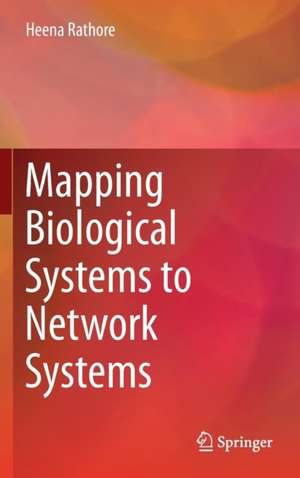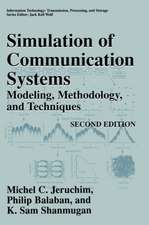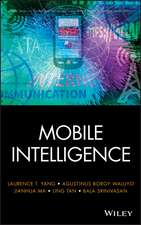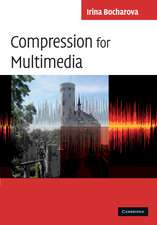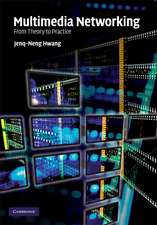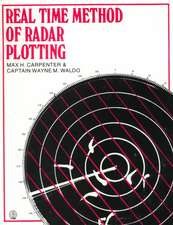Mapping Biological Systems to Network Systems
Autor Heena Rathoreen Limba Engleză Hardback – 19 feb 2016
| Toate formatele și edițiile | Preț | Express |
|---|---|---|
| Paperback (1) | 383.12 lei 6-8 săpt. | |
| Springer International Publishing – 30 mar 2018 | 383.12 lei 6-8 săpt. | |
| Hardback (1) | 390.25 lei 6-8 săpt. | |
| Springer International Publishing – 19 feb 2016 | 390.25 lei 6-8 săpt. |
Preț: 390.25 lei
Nou
Puncte Express: 585
Preț estimativ în valută:
74.68€ • 77.68$ • 61.66£
74.68€ • 77.68$ • 61.66£
Carte tipărită la comandă
Livrare economică 14-28 aprilie
Preluare comenzi: 021 569.72.76
Specificații
ISBN-13: 9783319297804
ISBN-10: 3319297805
Pagini: 196
Ilustrații: IX, 196 p. 107 illus., 37 illus. in color.
Dimensiuni: 155 x 235 x 13 mm
Greutate: 0.47 kg
Ediția:1st ed. 2016
Editura: Springer International Publishing
Colecția Springer
Locul publicării:Cham, Switzerland
ISBN-10: 3319297805
Pagini: 196
Ilustrații: IX, 196 p. 107 illus., 37 illus. in color.
Dimensiuni: 155 x 235 x 13 mm
Greutate: 0.47 kg
Ediția:1st ed. 2016
Editura: Springer International Publishing
Colecția Springer
Locul publicării:Cham, Switzerland
Cuprins
Introduction: Bio-inspired Systems.- Computer Networks.- InceptiveFinding.- Swarm Intelligence and Social Insects.- Immunology and Immune System.-Information Epidemics and Social Networking.- Artificial Neural Networks.- GeneticAlgorithms.- Bio-inspired Software Defined Networking.- Case Study: ProvidingTrust in Wireless Sensor Networks.- Bio-inspired Approaches in VariousEngineering Domain.
Textul de pe ultima copertă
The book presents the challenges inherent in theparadigm shift of network systems from static to highly dynamic distributedsystems – it proposes solutions that the symbiotic nature of biological systemscan provide into altering networking systems to adapt to these changes. Theauthor discuss how biological systems – which have the inherent capabilities ofevolving, self-organizing, self-repairing and flourishing with time – areinspiring researchers to take opportunities from the biology domain and map themwith the problems faced in network domain. The book revolves around the centralidea of bio-inspired systems -- it begins by exploring why biology and computernetwork research are such a natural match. This is followed by presenting abroad overview of biologically inspired research in network systems -- it isclassified by the biological field that inspired each topic and by the area ofnetworking in which that topic lies. Each case elucidates how biologicalconcepts have been most successfully applied in variousdomains. Nevertheless, it also presents a case study discussing thesecurity aspects of wireless sensor networks and how biological solution standout in comparison to optimized solutions. Furthermore, it also discusses novelbiological solutions for solving problems in diverse engineering domains suchas mechanical, electrical, civil, aerospace, energy and agriculture. Thereaders will not only get proper understanding of the bio inspired systems butalso better insight for developing novel bio inspired solutions.
- Shows how bio-inspired systems – which areinherently robust, flexible and have high resilience towards critical errors --hold immense potential for next generation network systems
- Outlines computing and problem solving techniquesinspired by biological systems that can provide flexible, adaptable ways ofsolving networking problems
- Provides insights into how the study ofbiological systems canmake network systems more flexible, adaptable,self-organized, self-aware, and self-sufficient
Caracteristici
Shows how bio-inspired systems – which are inherently robust, flexible and have high resilience towards critical errors - hold immense potential for next generation network systems Outlines computing and problem solving techniques inspired by biological systems that can provide flexible, adaptable ways of solving networking problems Provides insights into how the study of biological systems can make network systems more flexible, adaptable, self-organized, self-aware, and self-sufficient Includes supplementary material: sn.pub/extras
